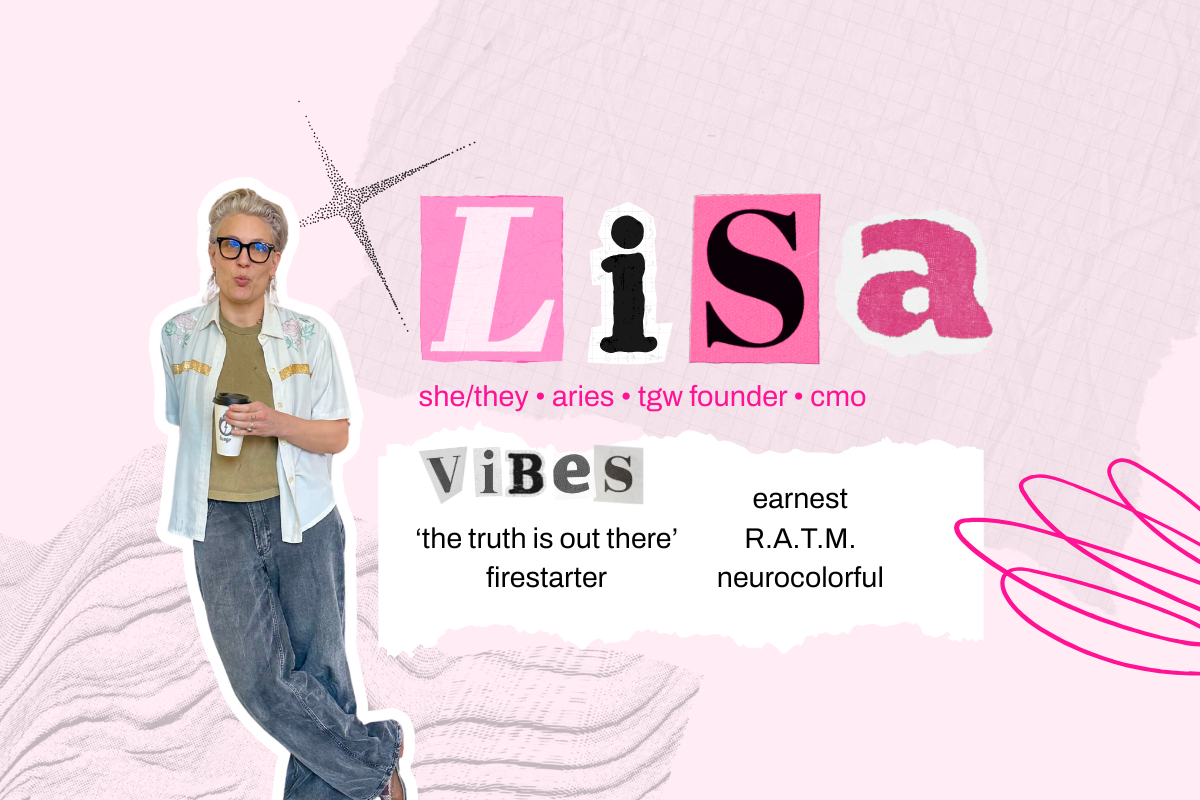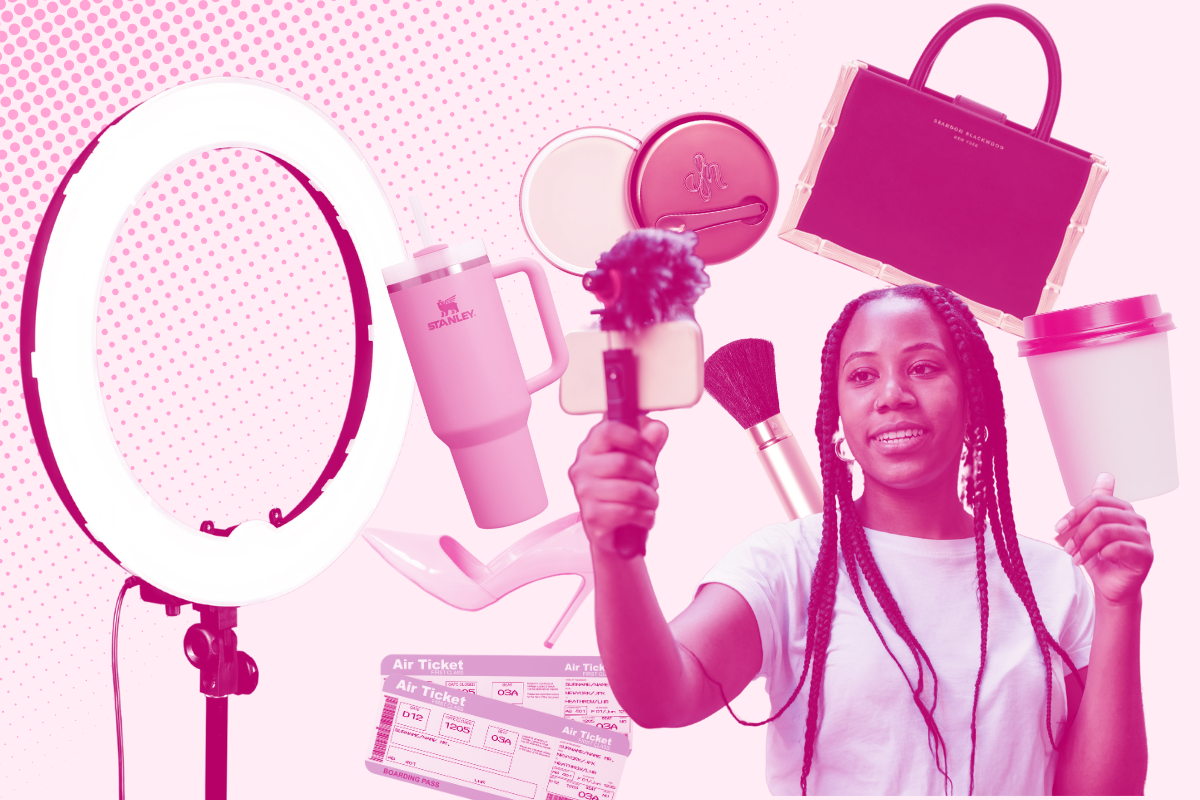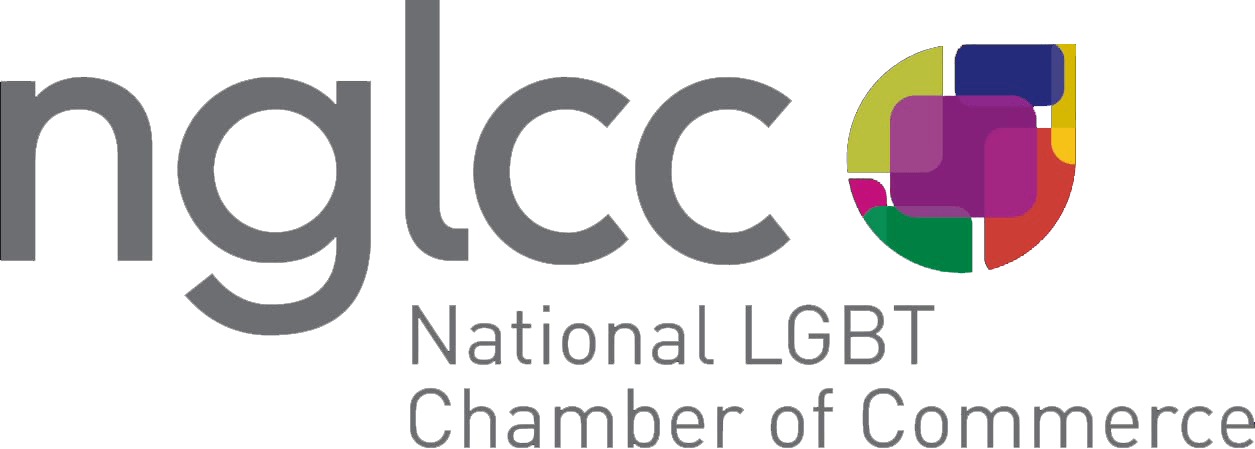TGW Studio is proud to be a neurodiverse, anti-ableist workplace that is inclusive to all types of humans. We recognize that some of the most brilliant and creative minds belong to uber talented individuals who happen to live with disabilities and/or chronic health conditions.
When it comes to a work environment, one size does not fit all. Making an effort to accommodate your staff’s needs contributes to a number of positive outcomes, such as: good morale/company culture and a reduction in profit loss from absenteeism. We know that when people are able to work in a way that suits their needs, they are more productive – and generally well!
Check out these 8.5 accommodations that you could implement at your company!
1. 4-Day Work Week
There’s a lot of good to be said about the 4-day work week. Not only does the 4DWW not compromise productivity or revenue – it also contributes to employee wellbeing and prevents burnout. This manageable 32-hour schedule is extra beneficial for individuals living with disabilities and health conditions that make them more at risk for burnout, such as: ASD, ADHD, depression, fibromyalgia, chronic pain, and more.
2. Hybrid schedule/remote flexibility
Whether employees live with chronic health conditions that flare up (causing absenteeism) – or they simply need variety in their work environment – going hybrid and allowing remote work is an impactful way to accommodate your team and be inclusive to those who can’t sustain the M-F office grind. And we know what you’re wondering – are employees as productive when they work from home? Studies have shown that the answer is: Yes. For a variety of reasons – such as less distractions and more autonomy – employees are up to 50% more productive than their office counterparts. (They’re also less likely to quit!)
3. Encouraging the use of noise-cancelling headphones
Sensory issues detract from focus, flow, and productivity. For employees who struggle with distractions and sensory issues, encouraging the use of – and even providing – noise-canceling headphones or earplugs can make a world of difference.
4. Offering quiet spaces to work
Open floor plans, though they encourage social interactions and collaboration (which are great!!), can make it difficult to focus, especially for individuals with ADHD and/or autism. Giving employees their own office or having a “deep work” room with a door can do the trick.
5. Lighting alternatives for those with light sensitivity
Individuals with light sensitivity (considered a disability under the ADA) can suffer from headaches & migraines, eye strain, and fatigue when exposed to certain forms of lighting. If you don’t have the luxury of placing desks in soft natural lighting, make your office more accessible by offering lighting with a dimmable feature or providing adjustable desk lamps. Providing screen filters and/or encouraging employees to install browser plug-ins that are easy on the eyes is also helpful. If replacing light bulbs and purchasing accessible lighting is not realistic for you, employers can also offer to purchase specialized glasses to help with light sensitivity and migraines.
6. Encouraging shame-free breaks as needed 🧘🤸
Some days, you’re in the zone. Other days, you might feel more scattered and in need of frequent movement. A great way to encourage breaks is to lead by example. Ask co-workers if they’d like to join you for a walk outside! Add a team lunch or coffee break to the calendar! Create a space or two at the office for quiet meditation or a creative activity, like a team collage or puzzle that folks can work on here and there. At TGW, we have a gigantic coloring poster on the wall that our team works on when we need a 5-10-minute break from our screens!
7. Comfortable furniture options
Having comfortable, non-office furniture is a win-win for everyone. Think: couches, chairs, beanbag chairs, play furniture (yes, we have this lol), et al.
8. Limiting meetings
Too many meetings can be draining and have a negative impact on productivity. One way to offset this is to designate one or two days a week that are meeting-free or light on meetings – and encourage staff to engage in distraction-free deep work.
8 ½ - Keep the lines of communication open.
It’s not enough for employers to simply claim they’re accessible and inclusive, nor is it a one-and-done conversation or provision. Accessibility and inclusivity are goals to constantly practice and work toward by checking in with employees routinely. There’s no way to anticipate every individual’s needs, so creating a safe space – and prompting conversations to both individuals and the team at large – is the first step toward a healthier, happier workplace.








